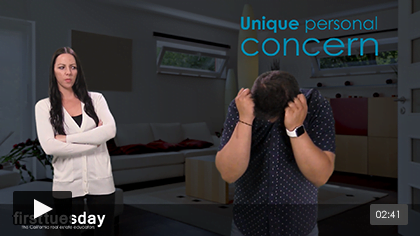Social media profiles are a must-have for real estate professionals. With the number of people using them on a regular basis exceeding 2.60 billion, they represent a vast pool of potential customers and partners that real estate professionals cannot afford to ignore.
If you already have been harnessing the wonderful benefits of social media for your real estate business, chances are that some concerns have also crossed your mind. Your reputation might be one of them.
According to a recent study on business reputation on social media published in the Journal of Direct, Data and Digital Marketing Practice, there are a number of threats that you should protect your business from, including:
- customer-generated content that spreads rumors, complaints or other inaccurate information about your company;
- employee-generated content posted on social media without permission from your company and which shares inaccurate information; and
- lack of control and surveillance over social media content which can result in significant social media crises.
As you can see, there are three primary angles from which threats to your reputation can emerge: the customer, the employee and the organizational angle.
How do you protect your business from these threats and keep your reputation intact? I’m going to show you right now.
1. Have a social media policy in place
Warren Buffet, a well-known American business magnate, once famously said, “It takes 20 years to build a reputation and 5 minutes to ruin it.” That couldn’t be said better. Many brands spend years to build a good reputation and some of them ruin it within minutes.
To eliminate the threat that emerges from the corporate angle and minimize the chances of ruining your reputation by a foolish mistake, develop a clear social media policy for employees.
Here’s what should be in that policy:
- prohibition of unsupervised content creation and distribution on social media;
- prohibition of communicating confidential and private information, such as customer addresses, etc.;
- employee responsibility for the content they create; and
- distribution of only legal and accurate content.
Build your social media policy around these essentials and you’ll minimize the risk of ruining your reputation. It’ll serve as a much-needed control and surveillance tool that lets your employees know how to conduct social media activities to avoid consequences.
2. Monitor social media
In addition to company review websites, customers can leave comments and complaints about your business on social media, which makes it harder to find. The key to finding content that could potentially be harmful to your reputation is constant social media monitoring (also often referred to as listening). It allows you to know what your audience has to say about your real estate business, your competitors and the market in general.
Thanks to technology, you don’t have to monitor social media manually. Instead, you can use special tools that automate the process and make it easy and efficient.
Before we dive in, here’s a list of what you should monitor on social media:
- the name of your business;
- your name (and names of partners); and
- your unique product/service name.
Check out the following free tools for social media monitoring:
Allows searching over 500 popular social media networks and 150 domain names, for free!
If you want to search complaint websites to find out if someone complained about your business, you can use this tool.
This tool for Google is often overlooked by many business owners, but it’s actually amazing. It can send you emails if Google finds a mention of you, your partners, customers or your company on the web.
3. Improve your brand’s communication with customers
Let’s say a customer has written a negative comment under a social media post you created. That’s an emergency! There are several ways you can go about it: delete it, ignore it, get defensive or accept responsibility and find out what happened.
The last option is undoubtedly the way to go (choosing the other ones will do nothing but undermine your reputation). Write a reply to that comment, apologize for their experience and ask them what happened.
This is the best thing you can do since other customers will see that you’re committed to resolving bad situations that occur with your current customers.
Here are some tools to improve your communication with customers:
- Negative Comments Response Template for Social Media. This free template provides examples and sample replies to negative comments of customers.
- Assignmenthelper. Assistance of social media customer service professionals will help you craft your content and communicate with customers in an effective way.
- Fancy Facebook Comments Plugin. If you’re using WordPress, this is a great solution for you to enable your website’s visitors to leave comments using their Facebook account.
The bottom line
Since social media is so important to a successful real estate business, doing your homework to maintain your professional reputation makes perfect sense. Use the tips in this article to tackle this task effectively and don’t forget to monitor social media at all times – you never know when a reputation threat will emerge!
Would you like to see yourself published as a guest writer on the first tuesday journal online? We welcome your submissions at editorial@firsttuesday.us. All submissions must adhere to the rules set forth in our guest writer guidelines.
All opinions expressed by guest writers are those of the authors alone, and do not constitute first tuesday’s endorsement of policies, stances or opinions contained therein.















wow nice post
Real estate agents can loose everything in one bad posting. Fantastic article.